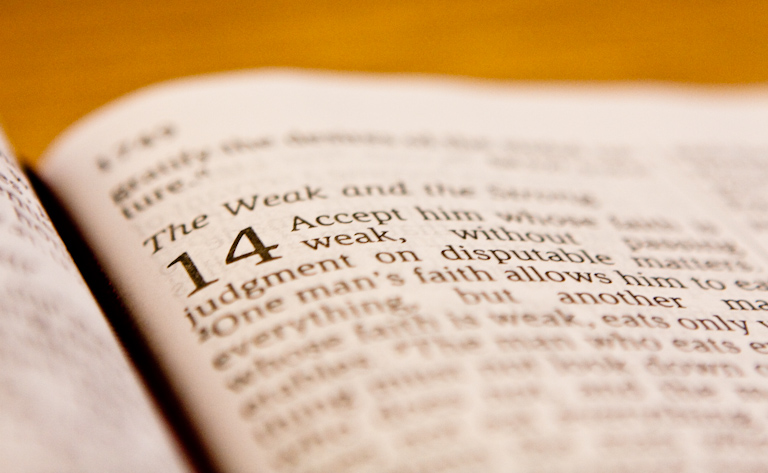Dualistic thinking is black-and-white thinking, no grays. Right is right and always so. Wrong is wrong and in every case. There is no middle ground, and those who try to occupy a middle ground are in danger of treason or, at best, are fooling themselves. Dualism, when adhered to strictly and consistently is an ideology, one shared by "true believers" of whatever persuasion.
The Bible is markedly dualistic. Psalm 1 sets the tone not only for the Psalms but also for the Bible more generally. It describes the ways of the wicked and the righteous. The Apostle Paul was a dualist, notably in his distinction between salvation by grace as opposed to works (see Romans 11:5-6). Rigid dualists can take frequent comfort from the Bible because they find much in it to justify their dualism.
Some of us, however, are non-dualists, or at least try to be (just ignore for a minute the logical contradiction of distinguishing non-dualists from dualists in a dualistic fashion!). Can we take any comfort from the scriptures if we believe there is usually a middle ground, things are almost never absolute, and dualism makes neat and tidy things that are inherently messy? Romans 14 is one place where things are no not quite so cut-and-dried and non-dualists can find biblical reflections that make sense from their perspective. In this chapter, Paul wrestles with divisions within the Roman church, especially over the question of eating or not eating certain foods and giving importance or not to certain days. Paul is a dualist, and so he divides the Roman Christians into those who are "strong in faith," that is those who eat anything and don't distinguish days and those who are "weak in faith" and do make such distinctions. He counsels mutual forbearance and cautions against judgment. He admonishes particularly the strong in faith not to engage in actions that will cause the weak to stumble.
In verse 14, he writes, "I know and am persuaded in the Lord Jesus that nothing is unclean in itself; but it is unclean for anyone who thinks it unclean." So, he goes on to say to the strong in faith, don't act without love by eating what the weak in faith find unclean. The unclean food won't hurt the strong, but if the strong eat it injury is done to the weak. The problem Paul seeks to address here is a common one, namely two well-intentioned individuals see the same thing differently. For one, a religious image of some sort points to profound spiritual truths. For another, the same image is nothing more than a piece of art. For still another, it is a symbol of human folly. In the case in Romans, the problem is food. In our churches today it is a whole range of contentious issues, many arising out of our view of the Bible itself (literal versus non-literal).
It is worth noting that Paul considers those who have no qualms about eating impure foods as being the ones who are strong in their faith. That, one would think, would be the more "liberal" position. Go ahead! Eat what you want (as long as you don't cause a scandal for those with weaker faith). You know it won't hurt you and so it won't. Context and situation matter. There is not an absolute right or wrong here other than the rule of love. Act with love! Even "flaming liberal's" will acknowledge the non-negotiable nature of the injunction to act lovingly, while also acknowledging that it is not always easy to distinguish what is most loving in a given situation.
But the larger point remains. In Romans 14, Paul treats an important question of theological and ethical conflict in the church in a way that mixes non-dualism in with his fundamental dualism. He acknowledges that things are not always black-and-white and that the right thing to do depends on the situation the faithful Christian finds herself in. And the strong in faith should stand ready to compromise their beliefs for the sake of other, less strong followers of Christ.
